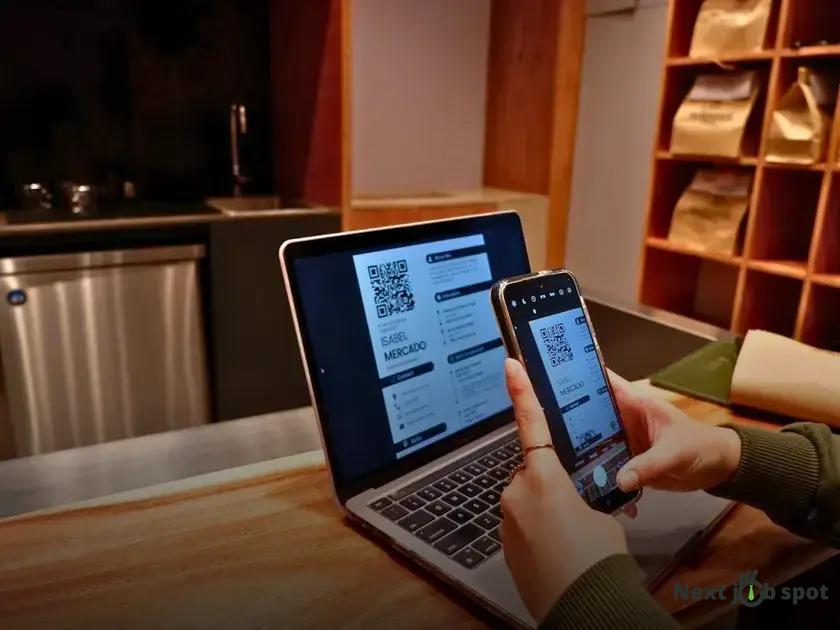Embrace the future of job interviews with cutting-edge technologies reshaping recruitment processes. From artificial intelligence to virtual reality, job seekers can expect a transformative experience. These innovations not only enhance efficiency but also offer unique insights into candidates’ abilities. As technology evolves, staying informed becomes crucial. Dive into the changes and prepare yourself for upcoming trends in job interviews.
The Rise of AI in Recruitment
As businesses seek more effective ways to streamline their hiring processes, AI technology is becoming a game-changer in recruitment. Companies are now utilizing artificial intelligence to not only sift through vast volumes of job applications quickly but also to ensure a higher level of precision in candidate selection.
One of the most notable aspects of AI in recruitment is its ability to reduce unconscious bias. Traditional recruitment methods often rely heavily on human decision-making, which can be influenced by personal biases. In contrast, AI algorithms can be designed to focus purely on skills and qualifications, offering a fairer assessment of candidates.
An important advantage of AI is its capability to analyze complex datasets. Recruitment processes generate a wealth of data, from resume information to social media profiles. AI tools can efficiently analyze these datasets, identifying the top talents based on specific criteria set by the employer. This not only saves time but also enhances the quality of hire.
Moreover, AI is proving to be valuable in the interview stage, too. Digital interview platforms integrated with AI can evaluate non-verbal cues, such as body language and tone of voice, providing insights that are hard for human recruiters to notice.
Adapting to AI-driven recruitment
For candidates, understanding the impact of AI in recruitment is essential. It’s crucial to focus on optimizing resumes and social media profiles as these are often the initial data inputs for AI systems. Keywords relevant to job descriptions should be carefully considered to enhance one’s visibility in AI-driven selection processes.
Additionally, as AI continues to evolve, professionals across all industries must be ready to engage with more technology-driven recruitment methods. This evolution calls for adaptability and an openness to learning new digital skills, which will be indispensable in navigating the future of job interviews.
Virtual Reality: A New Interview Experience

In the evolving landscape of job recruitment, virtual reality (VR) emerges as a groundbreaking tool that transforms the interview process. This innovative technology creates immersive environments where candidates and employers can interact in realistic settings, breaking the barriers of geographical limitations.
One of the most significant advantages of VR in interviews is the ability to simulate job-specific scenarios. Candidates can demonstrate their skills in a controlled but realistic environment, which offers a more accurate assessment compared to traditional question-and-answer sessions. For roles that require hands-on experience, VR can replicate complex job tasks, providing both parties a clear insight into an individual’s suitability for the role.
Moreover, VR enriches the candidate experience by removing the stress of unfamiliar interview settings. Employers can create a consistent and fair evaluation process by standardizing the environments and tasks presented to each candidate. This approach not only enhances the accuracy of assessments but also ensures that every candidate is judged fairly.
Additionally, the global reach of VR allows companies to interview potential hires from anywhere, without the need for physical travel. This accessibility greatly expands the talent pool, enabling companies to find the best fit across the globe. Virtual reality, therefore, stands as a pivotal force in shaping the future of hiring, offering unprecedented opportunities for inclusive and thorough candidate evaluations.
Beyond Traditional Methods: Innovations Ahead
Many companies are moving beyond traditional methods in their recruitment processes. With constant advancements in technology, human resources are exploring cutting-edge innovations to streamline and enhance the hiring experience. These innovations are aimed at making recruitment more efficient, bias-free, and accessible for a wider pool of candidates.
Automation is transforming how applications are reviewed. Instead of manually sifting through thousands of resumes, recruiters can now use AI-powered tools to pre-screen candidates, identifying the most qualified individuals quickly and accurately. These tools can analyze vast amounts of data to determine which candidates are likely to excel in a role based on their skills and experiences.
AI-driven chatbots also play a pivotal role in engaging with candidates. These chatbots provide real-time answers to frequently asked questions, schedule interviews, and even conduct preliminary screening interviews. This means that potential employees no longer have to wait for days to hear back from recruiters, enhancing candidate experience and satisfaction.
Virtual reality (VR) is making waves as a novel method for conducting job interviews. By simulating real-world job scenarios, VR allows candidates to demonstrate their skills and decision-making processes in controlled environments. This immersive experience not only provides a more accurate assessment of a candidate’s capabilities but also ensures that they are a good fit for the company culture.
These innovative approaches highlight a significant shift in recruitment strategies. By embracing these technologies, organizations are not only improving efficiency but also creating opportunities to discover top talent in an ever-evolving job market.
Preparing for the Future: Skills and Trends

As job interviews continue to evolve with technological advancements, it’s clear that preparing for future interviews will require a shift in skills and awareness of emerging trends. Candidates need to be proficient in digital communication tools, as many interviews are conducted online. This includes understanding how to present oneself effectively on camera and using various platforms for virtual meetings.
Adaptability becomes a key trait, as job roles may change rapidly due to AI and automation. Being able to learn new skills quickly can set candidates apart. Moreover, strong analytical and problem-solving skills will be highly valued as industries innovate and adapt to new challenges.
Emotional Intelligence
Emotional intelligence will be more crucial than ever, as AI takes over tasks that require standard IQ. Understanding how to interact with teams and leaders creatively can help candidates thrive in digitally transforming workplaces.
In addition, keeping up with trends in technology related to one’s field will prepare job seekers for tech-driven interviews. Being aware of how AI and virtual reality are shaping the hiring process allows candidates to anticipate the skills they need to shine. For instance, exploring VR interview training tools might give an edge in a competitive job market.
Equipping oneself with a growth mindset will encourage consistent personal and professional development, preparing candidates for whatever the future of job interviews holds. Staying informed about industry-specific changes can help in understanding which skills are becoming obsolete and which are rising in demand.
Overall, success in future job interviews will hinge on a candidate’s ability to remain flexible, technologically savvy, and emotionally intelligent. Those who can blend these elements effectively will likely navigate the changing landscape of job recruitment with greater ease.


